Venezuela to Texas
After Moving 2,405 Miles, Sophomore Compares Schools
Sophomore Giselle Muniz moved from Venezuela to Texas only two years ago. She compares her old home to her school and life here in Texas.
September 7, 2018
A new country. A new school. A new language. After moving here just two years ago from Caracas, Venezuela, “new” has been a keyword for sophomore Giselle Muniz.
Only a month after moving to the U.S., Muniz began eighth grade. She said she immediately found that besides the language difference, there was a difference in how students were treated.
“What surprised me the most was that they expected kids to know what they wanna be when they grow up,” Muniz said. “I was so confused because I [didn’t] know what I [wanted] to be.”
While she may have felt overwhelmed at first, Muniz said that she began to enjoy the freedom offered in choosing her classes.
“It [feels] really nice to be able to study whatever [I want],” Muniz said. “I’m able to study things that I like and want to learn more about.”
In addition to freedom over courses, students enjoy the privilege of expressing themselves through their outfits, as long as they abide by the dress code. However, in Venezuela, Muniz dressed for school everyday based on the specific colored uniform assigned to her grade.
“I [was] annoyed that I had to wear [uniforms] and not whatever [I] wanted,” Muniz said. “Now I feel annoyed that I have to buy clothes.”
Muniz got used to attending a school with only 600 students when she lived in Venezuela. Once she got to Cedar Park, Muniz said that she had to adjust to sharing the hallways with 1,950 other students.
“I thought I was going to be late to class every day and that I was going to get in trouble for it,” Muniz said. “If you were late to class more than five times in my old school you got in trouble.”
Being able to rent out a Lenovo laptop may not phase some students, but Muniz said that she sees that both students and teachers here are quite privileged when compared to those in Venezuela, where phones and computers were uncommon due to the high crime rate.
“The homework, we had to write it down,” Muniz said. “The teachers didn’t use a computer. The students didn’t use computers. You know how dangerous it was in Venezuela to even have a phone? How would you bring an actual computer to school? And [why would the] school actually provide a computer for you if they knew it would get stolen?”
Muniz said that she has experienced a completely new sense of pride, between pep rallies and Friday night lights.
“Here you have districts and you compete against each other. There we didn’t really care that much,” Muniz said. “It’s really nice to be in a place where people are proud to be here.”
Muniz said that she is looking forward to her next few years of high school and she hopes to figure out her path in life.
“I want to take some more fun classes,” Muniz said. “This is my first year taking theatre and it’s really fun so far. I want to take some more advanced art classes and when I decide what I want to be when I grow up, I’ll take a class that’s related to that.”

![Posing with their UIL State Trophy, the Robolobos Van Halen Team beams with excitement after their win. “It was a team effort,” junior Noah Vo said. “I was happy because something happened in the first match and the match was also really close. So [when] they finally revealed it, I was pretty happy.” Photo courtesy of Amy Lovelace](https://cphswolfpack.com/wp-content/uploads/2025/05/IMG_0910-EDIT-1200x723.jpg)
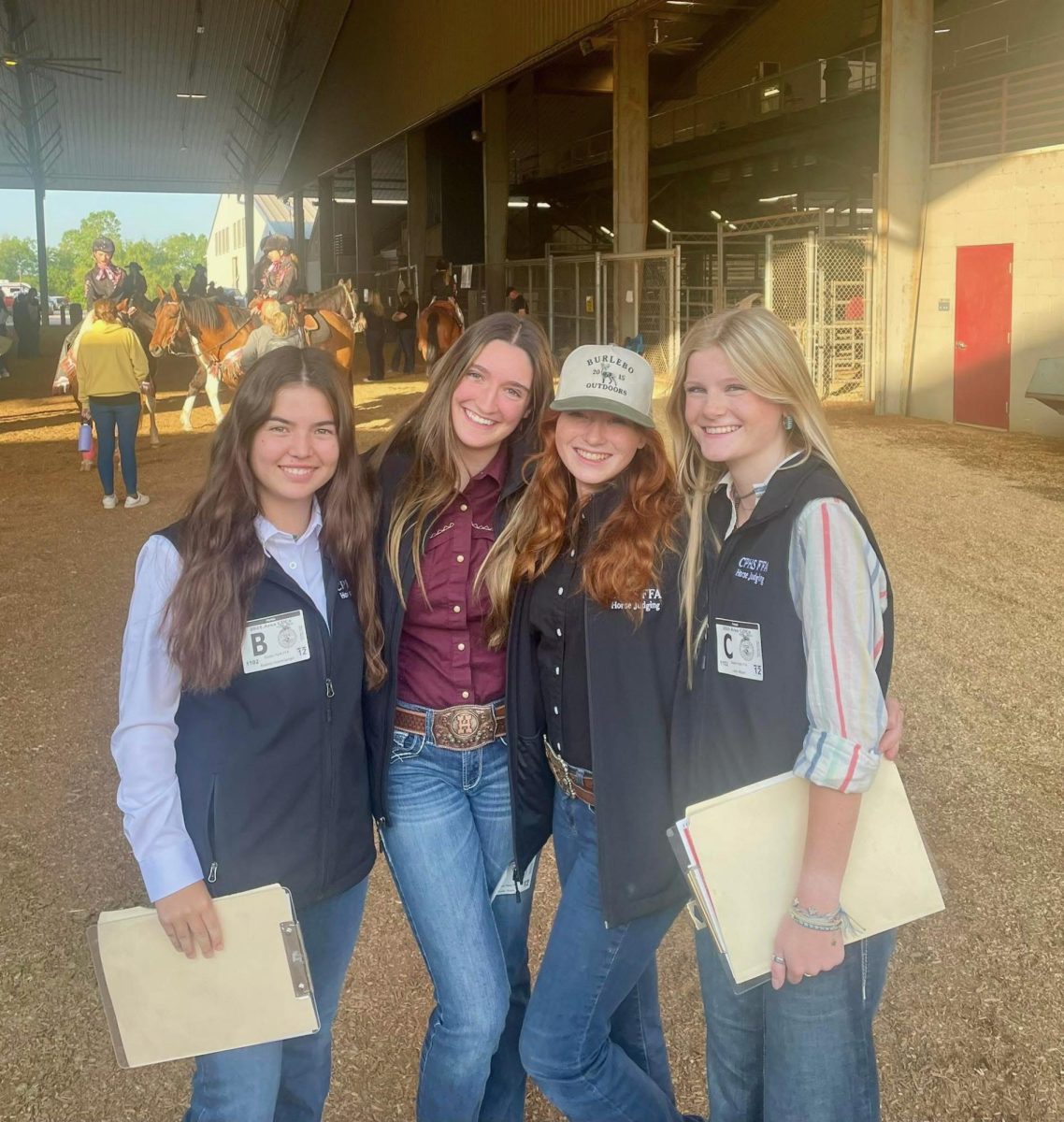
![Broadcast, yearbook and newspaper combined for 66 Interscholastic League Press Conference awards this year. Yearbook won 43, newspaper won 14 and broadcast took home nine. “I think [the ILPC awards] are a great way to give the kids some acknowledgement for all of their hard work,” newspaper and yearbook adviser Paige Hert said. “They typically spend the year covering everyone else’s big moments, so it’s really cool for them to be celebrated so many times and in so many different ways.”](https://cphswolfpack.com/wp-content/uploads/2025/05/edited-ILPC.jpg)











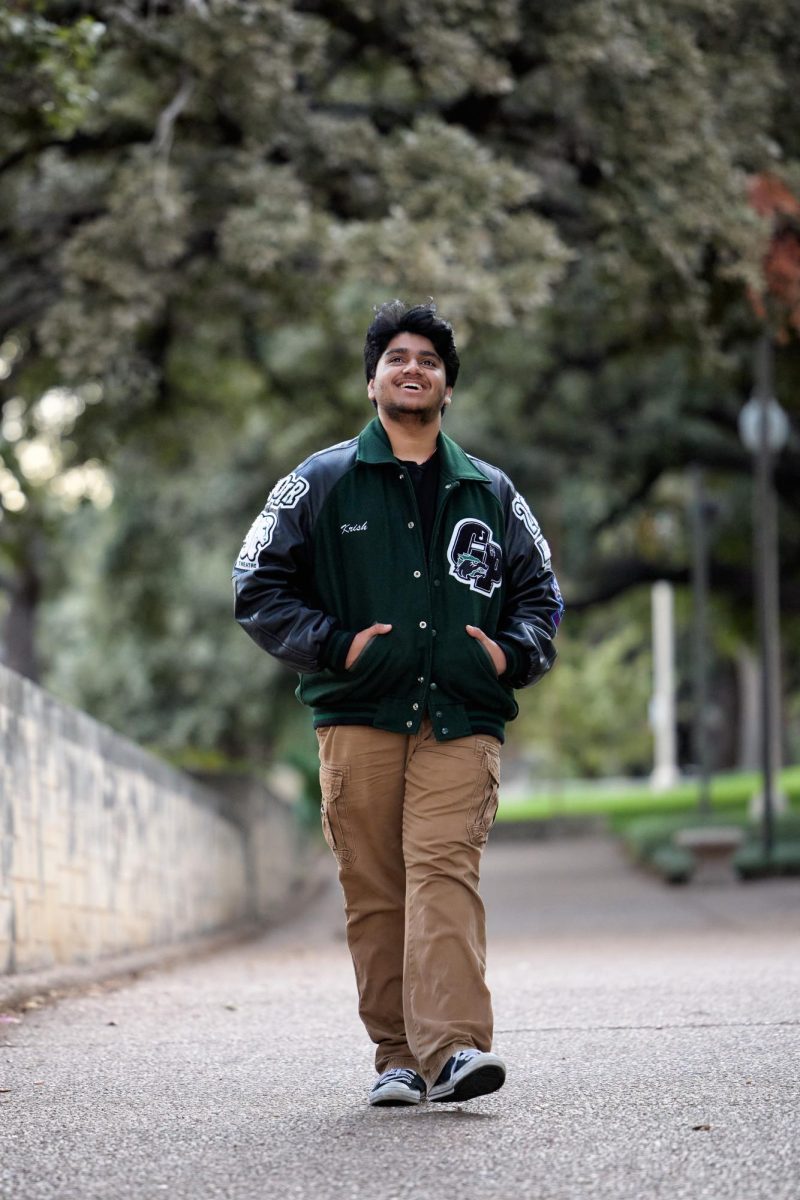

![Bringing her arm over her head and taking a quick breath, junior Lauren Lucas swims the final laps of the 500 freestyle at the regionals swimming competition on date. Lucas broke the school’s 18-year-old record for the 500 freestyle at regionals and again at state with a time of 4:58.63. “I’d had my eye on that 500 record since my freshman year, so I was really excited to see if I could get it at regionals or districts,” Lucas said. “ State is always a really fun experience and medaling for the first time was really great. It was a very very tight race, [so] I was a bit surprised [that I medaled]. [There were] a lot of fast girls at the meet in general, [and] it was like a dogfight back and forth, back and forth.” Photo by Kaydence Wilkinson](https://cphswolfpack.com/wp-content/uploads/2025/03/Kaydence-2.7-23-edit-2.jpg)
![As the support team sits and poses for a photo in the cafeteria with the counseling team they eagerly wait to start their day. "We [all] seem to be a team, I get up every day and there's days where I don't want to go to work today, but I'm thankful that I have a job and I'm blessed to have what I have," Christopherson said. Photo Courtesy of Julie Weltens.](https://cphswolfpack.com/wp-content/uploads/2025/01/AF9E8470-10D7-4C91-BF28-EC8F86BAB66C-1200x852.jpeg)
![Officer Stephanie Cash is in her second year as an SRO at CPHS. “Seeing [students] grow over the years has been kind of cool,” Officer Cash said. “Freshmen that [are] all over the place and then in the next couple of years get a little more squared away and go to class and do work and start thinking about the future. Being a part of a student's growth is the best way to measure my success as an SRO.” Photo Courtesy of Cedar Park Police Department's PIO, Alicia Gallagher.](https://cphswolfpack.com/wp-content/uploads/2024/12/CPHS-SRO-900x1200.jpg)


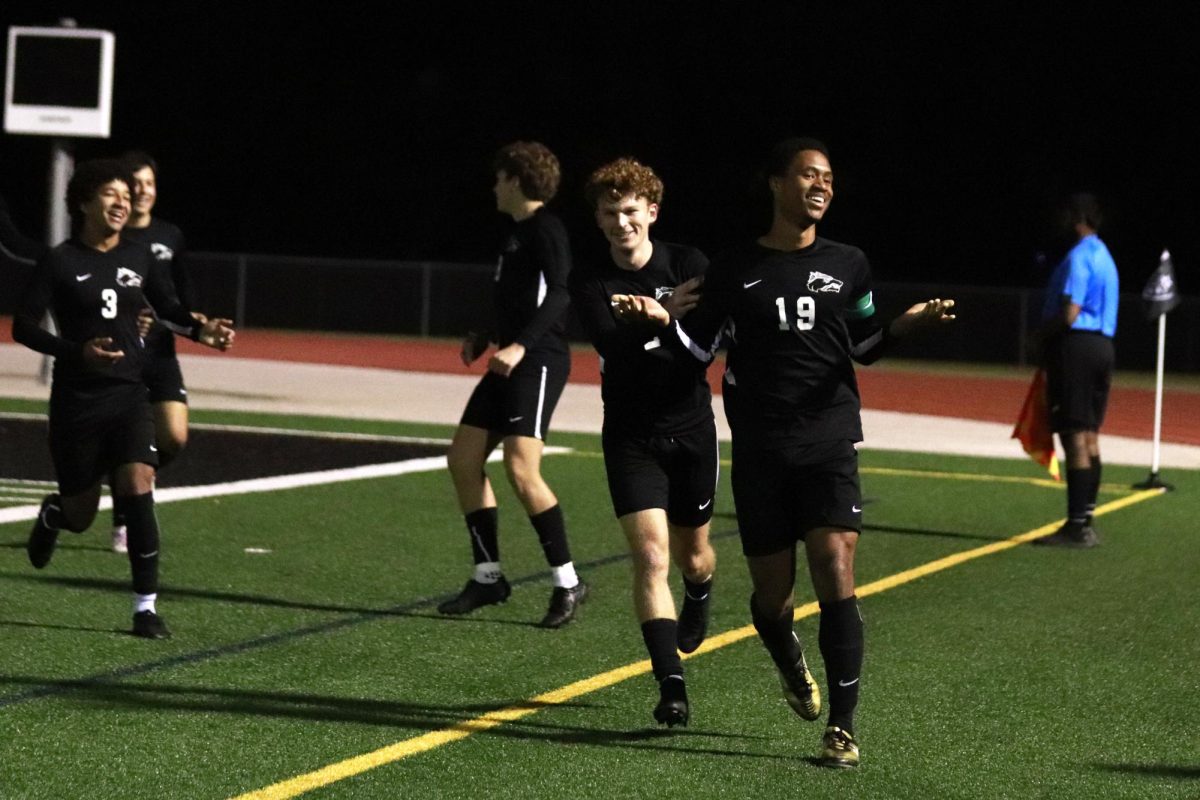
![Taking a breath as he raises his arm up and out of the water, sophomore Kaden Padilla swims the 500 freestyle at the UIL state meet on Feb. 21-22. Padilla placed 10th overall and second in the consolation final in the event, dropping two seconds. “My family was there, so being able to drop time for them was really special,” Padilla said. “It was awesome [finding out I advanced to the consolation finals]. I wasn’t expecting it, and I was very surprised. My parents being there definitely made me a lot happier knowing they got to see me swim in finals.” Photo by Skyler King.](https://cphswolfpack.com/wp-content/uploads/2025/03/kaden-padilla.jpg)

![Three defenders try to stop senior point guard Hope Edwards before the ball leaves her hands. The girls basketball team faced Liberty Hill on Feb 21, losing 58-40. “[My season was] definitely bittersweet,” Edwards said. It's definitely sad [because] I'm gonna miss all my teammates, my coaches and just the whole CP environment.”](https://cphswolfpack.com/wp-content/uploads/2025/03/julia-128-1200x800.jpg)














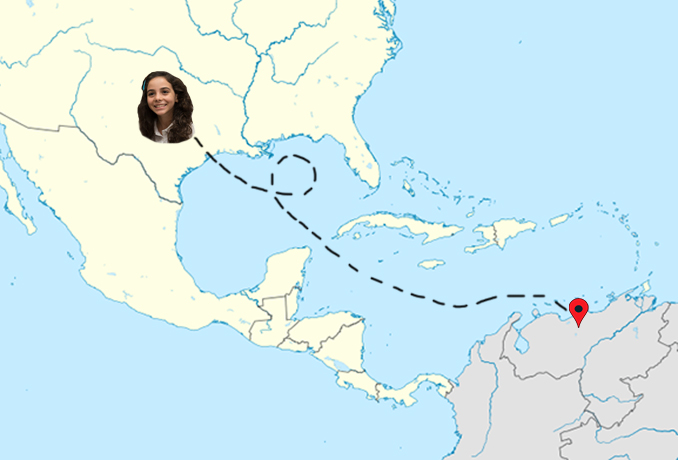
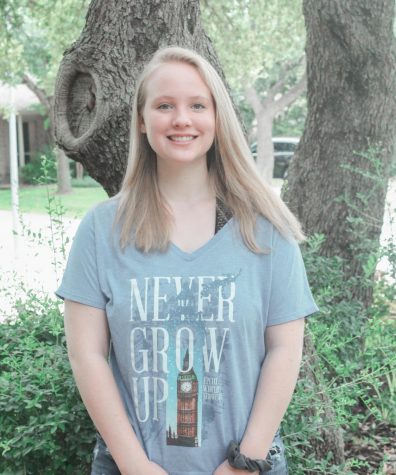


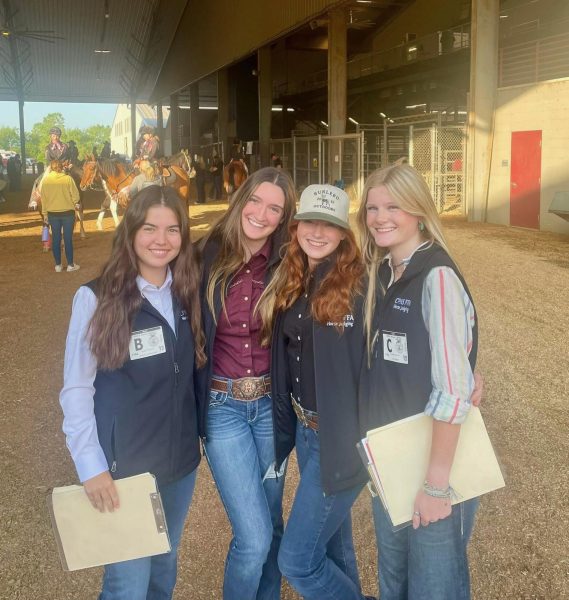



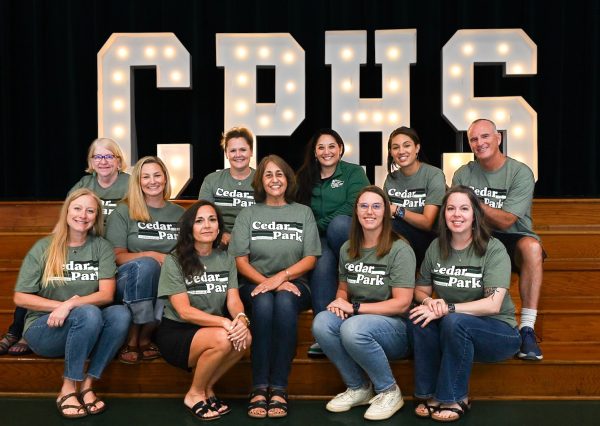
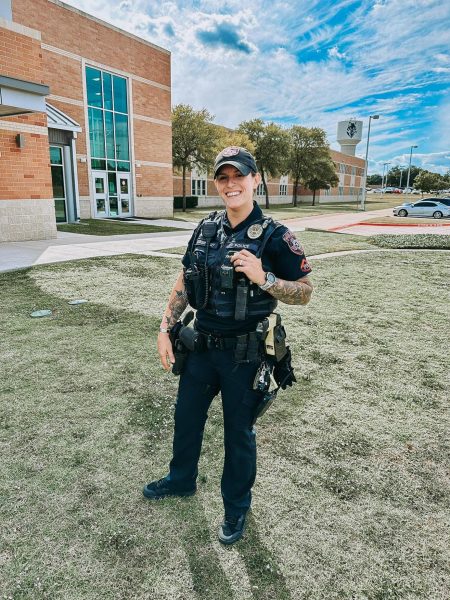


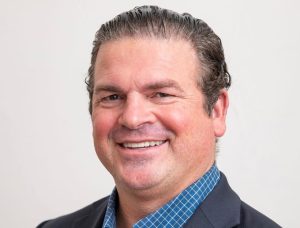



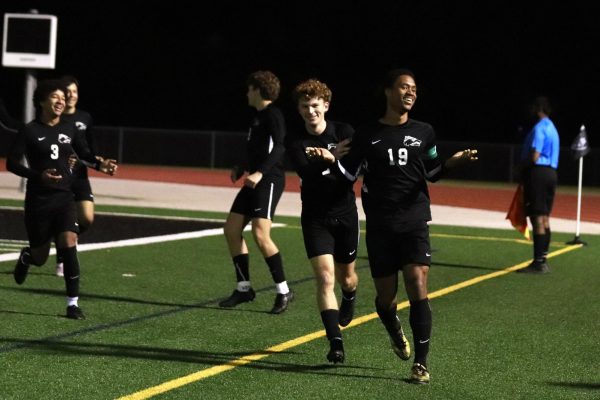
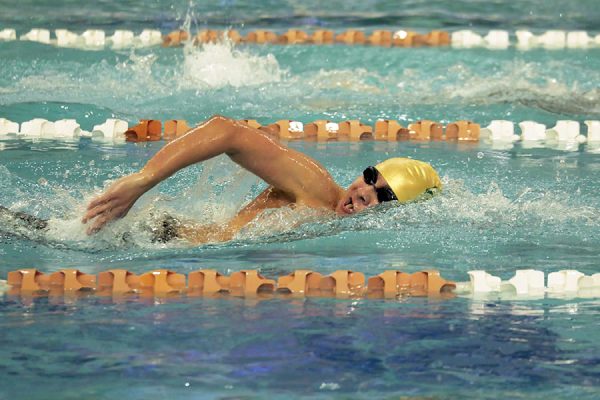


Alicia • Sep 13, 2018 at 2:57 pm
Thank you, Morgan, for the interview with our Giselle. It is an honor for us that she is part of CPHS.
German Muñiz, Sr. • Sep 8, 2018 at 9:48 am
I am a very proud grandfather. We lived together in Caracas in separate floors of the same house. I got accustomed to being amazed at Gigi’s accomplishments in and out of school. As with her family, I too had to leave our country Venezuela which was the richest and warmest country in Latin America. We thank the USA for having given all of us a new home and renewed hope.